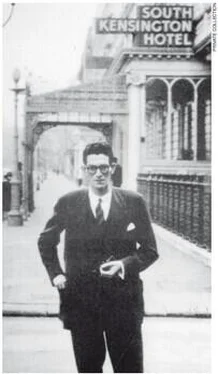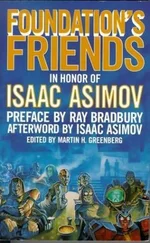Ben Macintyre - A Spy Among Friends
Здесь есть возможность читать онлайн «Ben Macintyre - A Spy Among Friends» весь текст электронной книги совершенно бесплатно (целиком полную версию без сокращений). В некоторых случаях можно слушать аудио, скачать через торрент в формате fb2 и присутствует краткое содержание. Год выпуска: 2014, ISBN: 2014, Издательство: Bloomsbury Publishing, Жанр: Старинная литература, на английском языке. Описание произведения, (предисловие) а так же отзывы посетителей доступны на портале библиотеки ЛибКат.
- Название:A Spy Among Friends
- Автор:
- Издательство:Bloomsbury Publishing
- Жанр:
- Год:2014
- ISBN:9781408851746
- Рейтинг книги:5 / 5. Голосов: 1
-
Избранное:Добавить в избранное
- Отзывы:
-
Ваша оценка:
- 100
- 1
- 2
- 3
- 4
- 5
A Spy Among Friends: краткое содержание, описание и аннотация
Предлагаем к чтению аннотацию, описание, краткое содержание или предисловие (зависит от того, что написал сам автор книги «A Spy Among Friends»). Если вы не нашли необходимую информацию о книге — напишите в комментариях, мы постараемся отыскать её.
A Spy Among Friends — читать онлайн бесплатно полную книгу (весь текст) целиком
Ниже представлен текст книги, разбитый по страницам. Система сохранения места последней прочитанной страницы, позволяет с удобством читать онлайн бесплатно книгу «A Spy Among Friends», без необходимости каждый раз заново искать на чём Вы остановились. Поставьте закладку, и сможете в любой момент перейти на страницу, на которой закончили чтение.
Интервал:
Закладка:
See Notes on Chapter 7
8
Rising Stars
With the coming of peace, the denizens of the secret world emerged onto a new political landscape fraught with uncertainty, and ripe with opportunity. James Angleton, anti-communist to the core, was elated at the prospect of doing battle with the Soviet spy machine. ‘I believed we were in the dawn of a new millennium,’ he later recalled. Nicholas Elliott moved easily from loathing Nazism to hating communism; both threatened the British way of life he cherished, and both were therefore evil. In Elliott’s mind, the threat from Russia represented a stark choice: ‘The continuation of a civilization mainly fit to live in, or Armageddon.’ For Kim Philby, too, the political frontiers shifted, though his convictions altered not at all. For most of the war, he had spied on behalf of Britain’s ally; now he was spying for Britain’s sworn enemy, and from within the very heart of the British intelligence machine.
Elliott plunged into his role as Britain’s spy chief in spy-saturated Switzerland with the enthusiasm of a schoolboy – which, in many ways, he remained. He was now a husband, a father (a son, Mark, would arrive in 1947) and a career intelligence officer, an MI6 professional with weighty responsibilities, yet there was still something boyish about him, an engaging combination of worldliness and naivety, as he waded cheerily through the moral and ethical quicksand of espionage. He found the challenge of intelligence-gathering not merely enjoyable, but frequently absurd. ‘I’m in it for the belly-laughs,’ he said. He knew his tendency to see the funny side in the worst situations was ‘a form of defence mechanism’, a way of holding back reality with jokes, the dirtier the better. Elliott’s character was a distinctly English combination of the staid and the unconventional, conservatism and oddity: he was popular with colleagues, for he was unfailingly courteous, and never raised his voice. ‘Verbal abuse is not the right course of action,’ he once reflected. ‘Except perhaps in dealing with Germans.’ Elliott could not abide bureaucracy, administration or rules. His knack for intelligence-gathering relied on personal contact, risk, hunch, and what he called ‘the British tradition of somehow muddling through despite the odds’. Jocular, old-fashioned and eccentric, Elliott struck some as a posh bumbler. It was a useful disguise.
As he had in Istanbul, Elliott gathered around him a collection of more or less motley characters, agents, informers and tipsters; he cultivated new friends, and imported old ones. ‘One of the joys of living in Switzerland in the immediate post-war period was to be able to have friends out to stay from deprived England and feed them up.’ The spare bedroom in Dufourstrasse became temporary home to a succession of British and American spies criss-crossing Europe. Richard Brooman-White, Elliott’s chum who had eased Philby into Section V, came to stay in 1946, and was very nearly immolated when a waitress in Elliott’s favourite restaurant attempted to flambé an omelette at the table by pouring brandy onto a heated pan, causing a violent explosion that set fire to the hair of a Swedish diner. Elliott extinguished her with three glasses of white wine. Philby made a point of stopping off in Switzerland during his regular tours of Europe, for working holidays with Elliott involving copious drink, Swiss cuisine and spy gossip. Another frequent visitor was Peter Lunn, one of Elliott’s ‘oldest and closest friends’ from Eton. Slight, blue-eyed and with a pronounced lisp, Lunn had joined MI6 at the same time as Elliott in 1939, but on the whole he preferred skiing to spying. The Lunns were ‘British skiing aristocracy’: Peter’s grandfather was a former missionary who spent a lifetime preaching the joys of skiing, and founded the ski travel company that still bears his name; his father successfully campaigned to have downhill skiing recognised as an Olympic sport, and Peter himself captained the British ski team at the 1936 Winter Olympics. Under Lunn’s instruction, Elliott took to the sport with a typical combination of enthusiasm and recklessness. Where his father had climbed mountains slowly, Elliott discovered the thrill of sliding down them as fast as possible. Most weekends he could be found on the slopes of Wengen or St Moritz. Elliott’s life in Berne was rendered still more pleasurable by the arrival of Klop Ustinov, his old friend and mentor from The Hague. After successfully extracting the spy Wolfgang zu Putlitz from the clutches of the Gestapo, the part-Jewish, part-Ethiopian Russian with the upper-class English accent had spent a fascinating war working for British intelligence, most recently in Germany where, in the uniform of a British colonel, he had proved to be ‘the ideal person to be entrusted with the interrogation of Nazi suspects’. In 1946, Ustinov was sent to Berne to work with Elliott on ‘attempting to piece together a picture of the post-war Soviet intelligence networks in Europe’. Elliott was delighted to be reunited with this spherical, jovial man, whose eye permanently twinkled with merriment behind his monocle. Klop believed that life was a ‘superficial existence’, an attitude of mind which fused perfectly with Elliott’s frivolity and taste for danger. The Elliott–Ustinov partnership proved extraordinarily effective, but rather fattening: a fine chef, Klop tended to turn up unexpectedly, carrying rognons de veau à la liégoise inside a leather top-hat case.
Elliott and Ustinov focused first on the remnants of the wartime Soviet spy system in Switzerland, notably the network codenamed the Rote Kapelle, which at its height had run some 117 agents, including forty-eight inside Germany, producing high-grade intelligence. One of the most important members of the network was British, a young communist named Alexander Foote. Born in Derbyshire, Foote had served in the RAF before deserting to join the British Battalion of the International Brigades during the Spanish Civil War. Shortly before the Second World War he was recruited by Soviet military intelligence and sent to Switzerland as a radio operator for the fledgling Rote Kapelle. In January 1945, Foote moved to Moscow, convinced his interrogators of his continued loyalty, and was redeployed to the Soviet sector of post-war Berlin under the pseudonym ‘Major Grantov’. There, in July 1947, he defected to the British. Foote produced a detailed picture of Soviet intelligence methods, offering a ‘unique opportunity to study the methodology of a Soviet network’, from which Elliott and Ustinov were able to draw up a ‘blueprint for communist activities during the Cold War’. Foote’s debriefing contained some deeply worrying elements, most notably the revelation that Moscow had many long-term, deeply embedded spies in Britain, some of whom had been recruited long before the war. Elliott and Ustinov concluded that most of these spies were ‘lifelong communist activists’, but not necessarily with any overt connection to the party.
*
James Angleton had come to see the task of combating Soviet espionage as ‘not so much an ideology, as a way of life’. In the last years of war and the first years of peace, Angleton’s agents pervaded every corner of Italy, the civil service, armed forces, intelligence services and political parties, including the Soviet-backed Italian Communist Party. Like Elliott, Angleton cultivated a brand of high eccentricity: he gave his agents botanical codenames, such as Fig, Rose or Tomato, and sported a fur cape with a high collar, which made him look ‘like a British actor emulating a thirties spy’. Behind his back, colleagues called him ‘the cadaver’ and wondered at his strangeness. ‘The guy was just in another world,’ said one. But he was good. By 1946, he had successfully penetrated no fewer than seven foreign intelligence services, and had a roster of more than fifty active informants – most of them quite dodgy, and some of them entirely so. Among the most glamorous, and least trustworthy, was Princess Maria Pignatelli, the widow of an Italian marquis with links to Mussolini who had offered her services to the OSS as an informant on what remained of Italian fascism. Angleton discovered, however, that she had previously been in contact with the German intelligence service; he was never sure how far he could trust the spy he knew, with only limited affection, as ‘Princess Pig’. Even more dubious was Virgilio Scattolini, a corpulent Italian journalist who wrote bestselling, semi-pornographic novels, including one entitled, rather unenticingly, Amazons in the Bidet . This sideline did not prevent him from obtaining a job on the Vatican newspaper. In 1944, he offered to supply the OSS in Rome with Vatican diplomatic documents and cable traffic, including copies of reports from the papal nuncio in Tokyo, who was in direct contact with senior Japanese officials. Angleton paid Scattolini a princely retainer of $500 a month. His reports were sent straight to Roosevelt, and were considered so secret that only the President or Secretary of State could authorise access to them. Angleton, however, began to have doubts when it emerged that Scattolini was hawking similar material to other intelligence organisations, including MI6. The crunch came when Scattolini reported a conversation between the Japanese envoy to the Holy See and his American counterpart, which the State Department discovered had never taken place. Scattolini was making it up, and he continued to do so, even after he was sacked by Angleton. In 1948 he was imprisoned for fabricating two entire volumes purporting to be the ‘Secret Documents of Vatican Diplomacy’.
Читать дальшеИнтервал:
Закладка:
Похожие книги на «A Spy Among Friends»
Представляем Вашему вниманию похожие книги на «A Spy Among Friends» списком для выбора. Мы отобрали схожую по названию и смыслу литературу в надежде предоставить читателям больше вариантов отыскать новые, интересные, ещё непрочитанные произведения.
Обсуждение, отзывы о книге «A Spy Among Friends» и просто собственные мнения читателей. Оставьте ваши комментарии, напишите, что Вы думаете о произведении, его смысле или главных героях. Укажите что конкретно понравилось, а что нет, и почему Вы так считаете.












